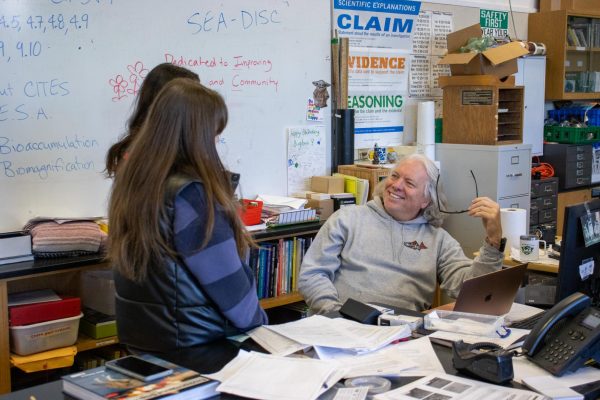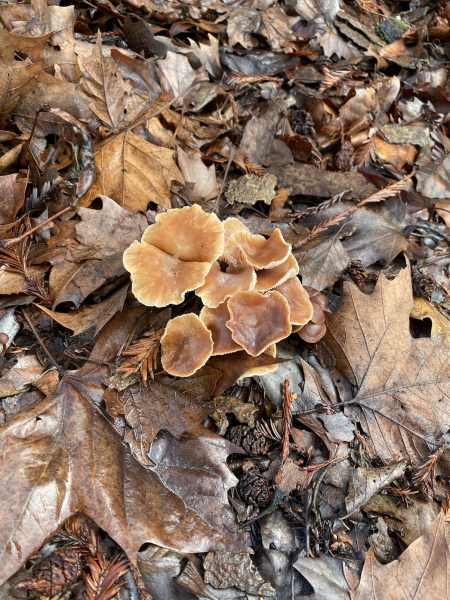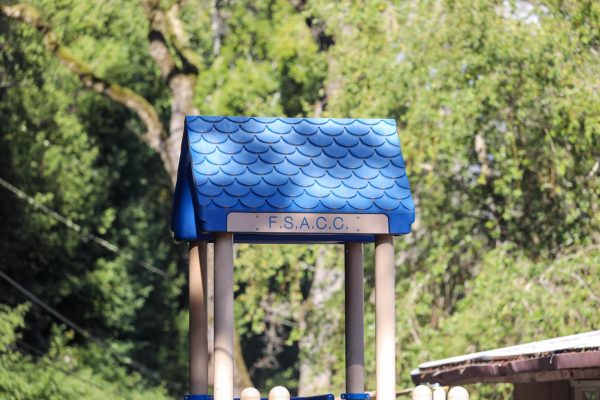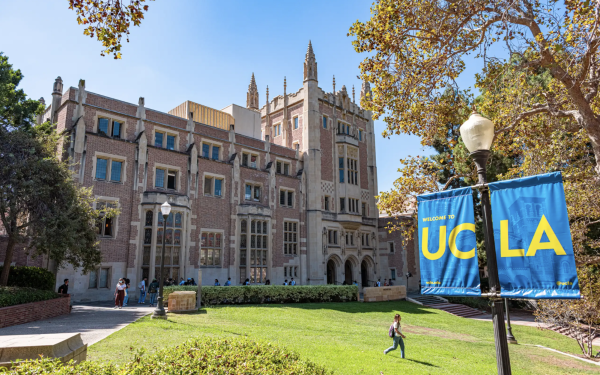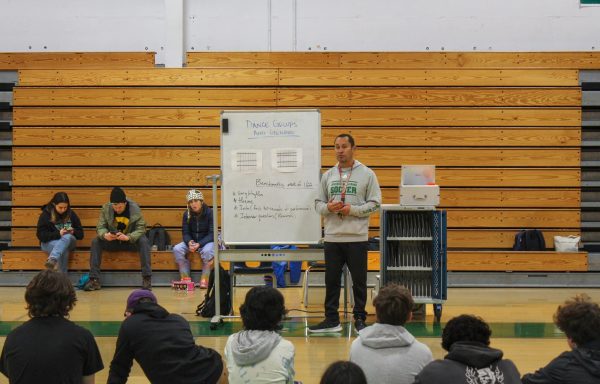Students: What happens if you cheat on a test?
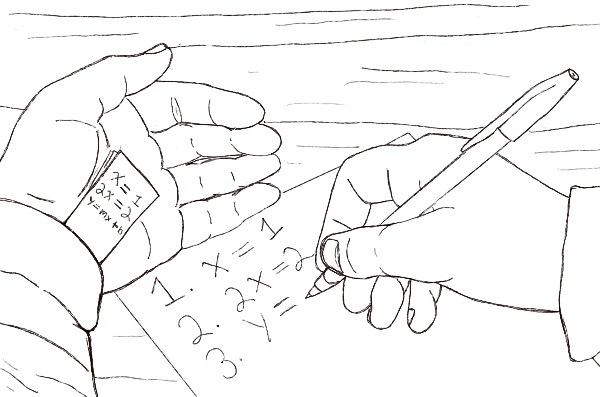
Due to academic pressures, some Archie Williams students opt to cheat on assignments or tests to receive a satisfactory grade.
It’s the classic high school cliche – the brainiac helping an academically-challenged athlete pass an exam through a carefully schemed plan. To avoid the imminent danger of suspension or expulsion, their attempts to cheat must be discrete. For Archie Williams students, cheating is rarely so dramatic.
The University of California San Diego defines academic cheating as an incident where a “student attempts to get academic credit in a way that is dishonest, disrespectful, irresponsible, untrustworthy or unfair.” However, in the TUHSD 2022-23 Student/Parent Handbook, examples of “academic dishonesty” are provided, but consequences are not listed directly in the guidelines. The only mention of the word “cheating” is under a list of “examples of misconduct that are defined as willful defiance and, as such, may be grounds for suspension or expulsion.”
The Archie Williams guidelines don’t ensure a direct path if a teacher catches a student cheating. Archie Williams junior Kathleen Swett doesn’t fully understand what the cheating guidelines entail, and she often sees students cheat with little to no repercussions.
“I haven’t heard of any [consequences for cheating],” Kathleen said. “Teachers say ‘don’t do it,’ but people do it all the time and nothing happens.”
Cheating might happen more often than one would think. A 2010 study by Donald McCabe, founder of the Center for Academic Integrity, revealed that 95 percent of high school graduates admitted to having cheated at some point in their academic career. Archie Williams Junior Jade Alberti says she sees many of her peers cheat, and find teachers generally laid-back surrounding cheating.
“Teachers are pretty relaxed, you usually just redo [the assignment],” Jade said. “I haven’t seen any serious repercussions for [cheating].”
Cheating on assignments and tests is a quick shortcut to receiving a good grade. In times of stress and overwhelmed workloads, some students resort to it to ease stress. According to the National Library of Medicine, academic pressure can raise stress levels, decrease real performance, and increase cheating.
“Everyone perhaps feels pressure to perform, but not everybody cheats,” said science teacher John Hayden. “So at what point do people decide that they are going to cheat instead?… Students are really interested in their grades and how well they do, but is that more important than the learning?”
Archie Williams’ policies leave room for teacher interpretation in response to cheating. Different classrooms take different approaches. When Hayden observes a student cheating, he likes to have conversations with offending students to help them understand what he expects of them.
“I usually point out what I see and ask some questions. Sometimes students are confused about what resources they’re allowed to use, and I think teachers in different classrooms have different expectations,” Hayden said.
French teacher Tahia Rosenthal-Cox has a “zero-tolerance” rule for cheating in her class. However, she is willing to keep an open conversation to determine what consequences are appropriate.
“I tell the students at the beginning of the year that I do not accept cheating. If I see cheating, I take their paper away and write a zero on it. Afterwards, I talk to them, and I ask them why they cheated.” Rosenthal-Cox said.
Instead of opting to cheat on an assignment or test, Rosenthal-Cox encourages her students to speak to her if they have academic issues. She values academic integrity in her classroom, and allows extensions on assignments if students are unprepared.
“I’d rather they come to me and say, l’m not ready for the test, and then l’m more than happy to give them an extension,” Rosenthal-Cox said. “I want to establish a relationship of trust with my students, and I want them to be proud of their work.”
Both Hayden and Rosenthal-Cox noted that honesty is more important to them than a dishonest, good grade. Archie Williams Assistant Principal, Kaki McLachlin, says that administration is currently working towards revising the academic dishonesty guidelines in an effort to clearly define the consequences for cheating.
“When [cheating] happens … a restorative conversation will be held between the student and teacher, typically to restore the trust that has been broken,” McLachlan said. “This is practice, not policy. We are currently looking to update our school’s policy on academic dishonesty.”
Rosenthal-Cox, like many teachers, feels it is empowering to have the discretion to create their own consequences for cheating. However, she acknowledges that uniform cheating guidelines may be clearer for Archie Williams students to understand.
“I like the fact that I can do my own thing,” said Rosenthal-Cox. “But maybe it would be more helpful for [the students] if the whole school had one single guideline, so that it’s clearer to the stude
nts.”
While TUHSD cheating guidelines outline cheating as a possible expulsionary offense, Archie Williams teachers employ a variety of personal cheating guidelines that are often not as severe.
Your donation will support the student journalists of Archie Williams High School. Your contribution will allow us to purchase equipment and cover our annual website hosting costs. Each donation will receive a magazine subscription for a year (6 copies a year), and become a part of the important work our publication is doing.
$35 -- Subscription to the magazine
$50 -- Silver Sponsorship
$75 -- Gold Sponsorship
$100 -- Platinum Sponsorship

Ella is a junior, in her second year of journalism. You can often find her dancing at Marin Ballet and reading. She plays ukulele and loves eating pasta....

Ava is a sophomore, in her second year of the class. She loves to dance, specifically ballet and has been doing it most her life. Her favorite thing to...

Sophia is a freshman, in her first year of journalism. She was born in England and lived there for six years. You can find her painting or cooking, and...



